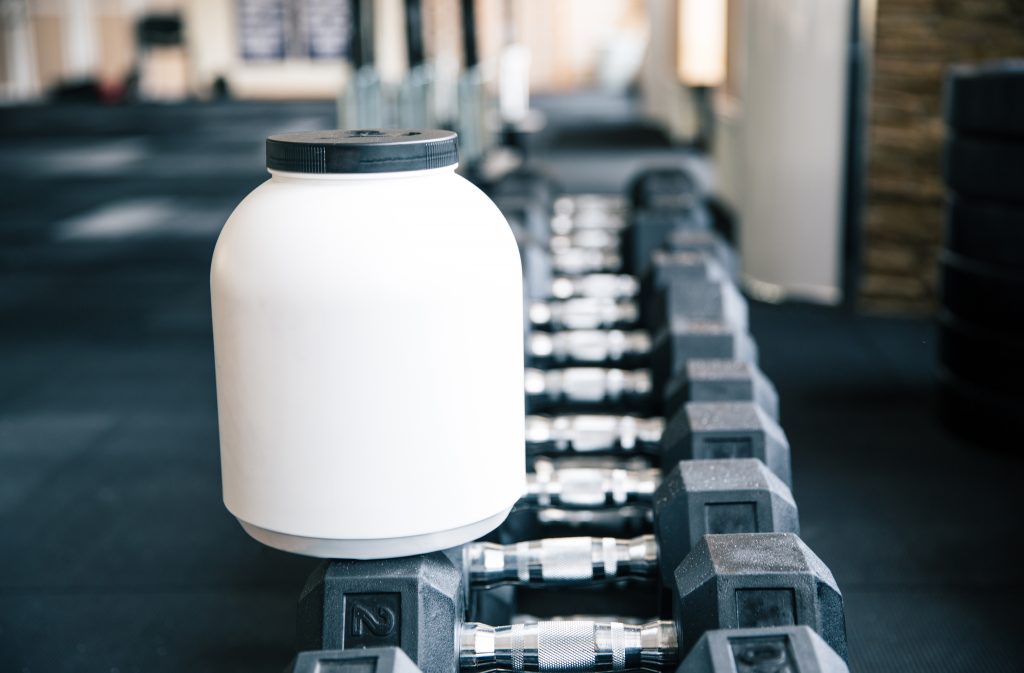
If you’re new to fitness, there’s probably one word you’ve heard more than any other when it comes to your diet—protein.
Protein is essential to proper fitness, but finding out how much you need can be difficult. It might feel like you get a different answer depending on who you ask.
The truth is shrouded in mystery thanks to misinformation from the supplement industry and outdated beliefs about nutrition.
This article dispels the myths you’ve heard and gives you the lowdown on protein:
- Why you need it
- How much you actually need
- And the true amount your body can handle in one sitting
What You Know About Protein is Probably Wrong
Most people have no idea how much protein they need to consume to achieve their fitness goals.
In one camp you have novices who don’t know a single thing about nutrition and still believe the food pyramid they learned in grade school is the guide they should follow.
As long as they hit their food groups and drink some whole milk, they’ll be good.
In the other camp are the fitness bros who read Men’s Health and fall for the ad of Jay Cutler holding the protein bottle and saying, “You need to drink a tub of this powder to look like me!”
These bros go overboard and think protein is all they need to look like a bodybuilder in a few weeks.
Sadly, both camps are severely misinformed when it comes to protein.
Why Protein is Essential to Proper Fitness
First of all, you don’t need to drink a protein shake in order to keep your muscle gains. That said, you won’t achieve the results you want if you don’t consume the proper amount of protein.
The primary reason you need protein is to provide your body with adequate essential amino acids to continue building and repairing your muscles.
If you exercise but don’t consume the protein your body needs, you’re impairing your body’s ability to rebuild muscle and inhibiting your gains.
Meatheads aren’t wrong when they say you need protein after you work out. You just don’t need it in the form of a shake you can buy from Men’s Health.
Even if you never work out, you still need some protein because it slows down the process of muscle loss, which occurs naturally with age.
You can’t be a “carbivore” your entire life—you have to get your protein somehow.
Protein Intake Depends on Your Goals
There’s a ton of research out there concerning how much protein you need, but the general consensus is that you should be eating between 1 and 1.5 grams of protein per pound of body weight every day.
I weigh 160 pounds, so I’d be looking at 160-220 grams of protein daily if I’m serious about my fitness.
Many people who are new to fitness are shocked by how much protein their body needs. One large chicken breast is about 30 grams of protein, so you’re talking about 5 breasts every day.
“Do I really need that much protein?” they ask me. Yes, you absolutely do.
To know where in that range you should fall, you need to look at your fitness goals.
Are you trying to get lean or are you trying to bulk up?
Your protein intake will be much lower if you’re not exercising, but since this is a fitness blog, I’m going to assume you’re either looking to burn fat or build muscle.
- Looking to get lean: 1.5 grams per pound of body weight
- Looking to bulk up: 1 gram per pound of body weight
Why You Need Less Protein When You’re Building Muscle
Consuming less protein when you’re bulking seems counterintuitive, doesn’t it?
If you’re trying to look like Jay Cutler, don’t you need more protein? This is a common misconception.
The truth is that high protein diets are better for cutting fat and preserving muscle. It’s nearly impossible to build any real muscle during a caloric deficit, so you want to keep what you have.
You’re also going to be really hungry and a high protein diet keeps you satiated for longer.
When you’re building muscle, you actually need more carbs and less protein.
Carbs keep your muscles full of glycogen, which is your body’s primary source of energy after an intense workout where you’ve broken down your muscles.
Protein’s purpose is the same for a bulk and a cut (it decreases the rate of protein breakdown that occurs after exercise), but its application is different for each.
During a bulk, it is important to keep your muscles as full of glycogen as possible as it improves performance and decreases catabolism (muscle breakdown). So the more carbs you eat, the better your progress will be.
You want to eat the minimum amount of protein you need during a bulk—1 gram per pound of body weight—and fill the rest of your calorie budget with fat and carbs.
How Much Protein Can You Absorb in One Sitting?
The question of how much protein your body can absorb in one sitting has become a heated topic among the legion of fitness bros armed with random internet studies done on rats that validate whatever they believe.
Here’s what the real research says: The limit on how much protein you can absorb in one meal is extremely high. So high, in fact, that you don’t have to worry about it at all.
So eat that fifth chicken breast of the day knowing your effort is not in vain.
If you’re just starting out and that mountain of protein is too daunting to eat, there’s no shame in drinking a protein shake to hit your number for the day.
You won’t feel as full after drinking the shake, and it definitely won’t turn you into Jay Cutler within a few weeks, but your muscles will be happy and you won’t be stuck staring at that fifth piece of dry chicken breast.

